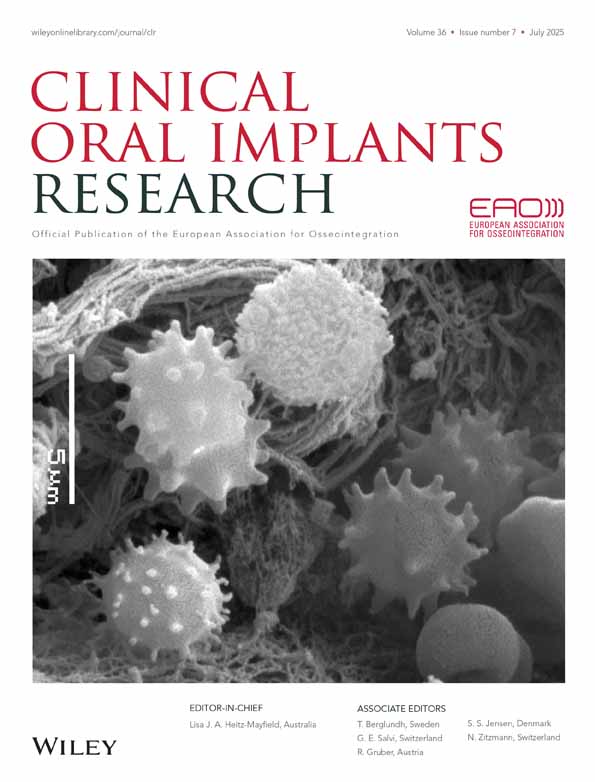Within-subject comparison of maxillary long-bar implant-retained prostheses with and without palatal coverage: patient-based outcomes
Abstract
Although maxillary implant overdentures are used in oral rehabilitation, different designs have not been compared previously in clinical trials. This crossover trial was designed to measure differences in patient satisfaction with maxillary long-bar implant overdentures with and without palatal coverage opposed by a fixed mandibular implant-supported prosthesis. Data were also gathered on new conventional dentures and on maxillary conventional dentures opposed by mandibular fixed prostheses. Sixteen participants were selected from a population wearing conventional dentures. Fifteen received new upper and lower dentures (1 drop-out). Four implants were placed in the maxilla and mandible (2 drop-outs). A mandibular fixed prosthesis was inserted in 13 participants, who were then divided into 2 groups. One group (n=7) received long-bar overdentures with palate, then long-bar overdentures without palate. The other group (n=6) received the same treatments in the reverse order. Mastication tests and psychometric evaluations using Visual Analog Scales and Categorical Scales were performed throughout the study. General satisfaction was very high with both maxillary implant-supported prostheses, as were ratings of almost all psychosocial and functional variables. There were no significant differences between treatments, suggesting that patients are equally satisfied with long-bar overdentures with and without palate when these are opposed by mandibular fixed prostheses. However, the ratings given to the maxillary implant prostheses were not significantly higher than for new conventional maxillary prostheses. This suggests that maxillary implant prostheses should not be considered as a general treatment of choice in patients with good bony support for maxillary conventional prostheses.




